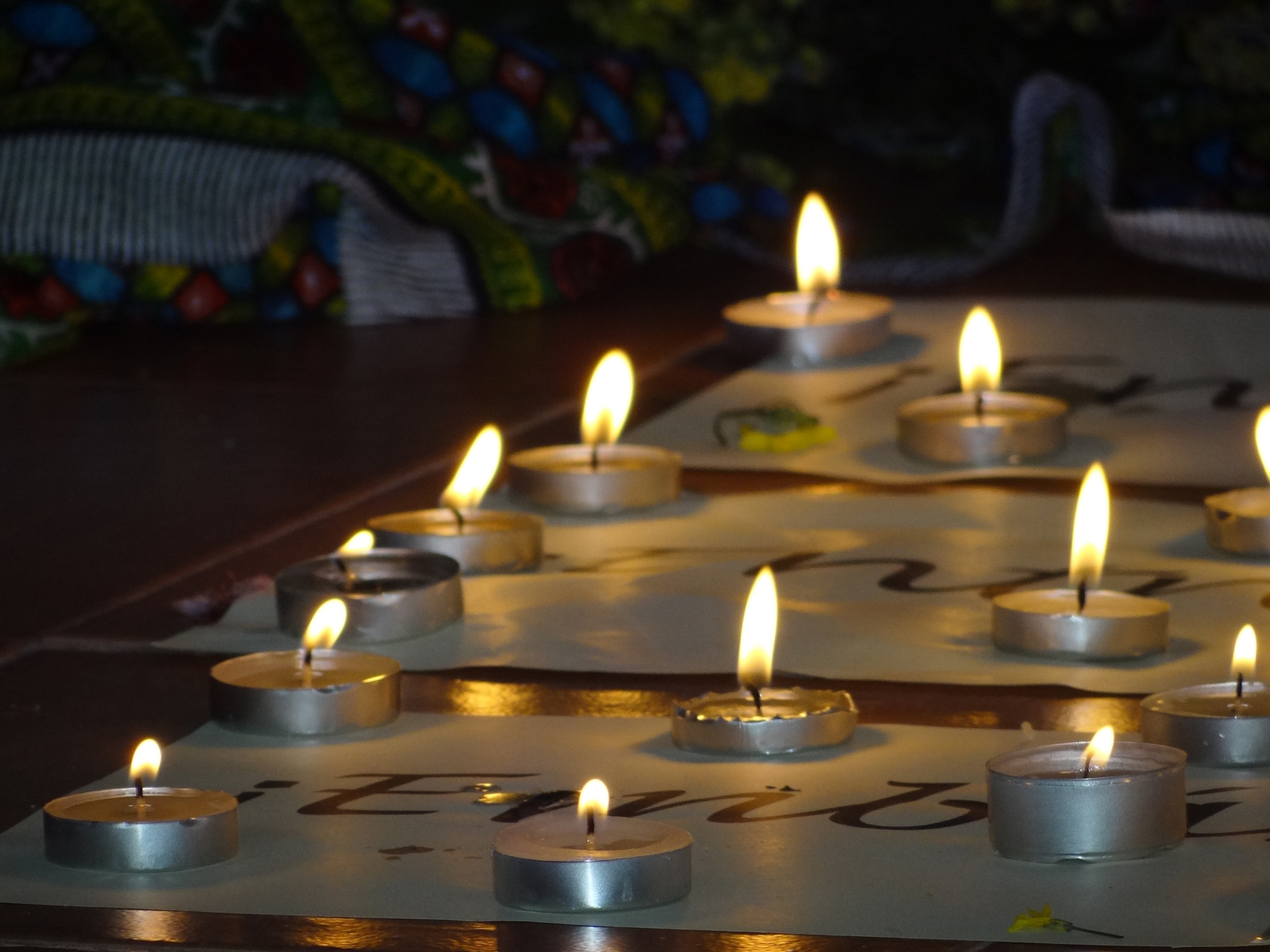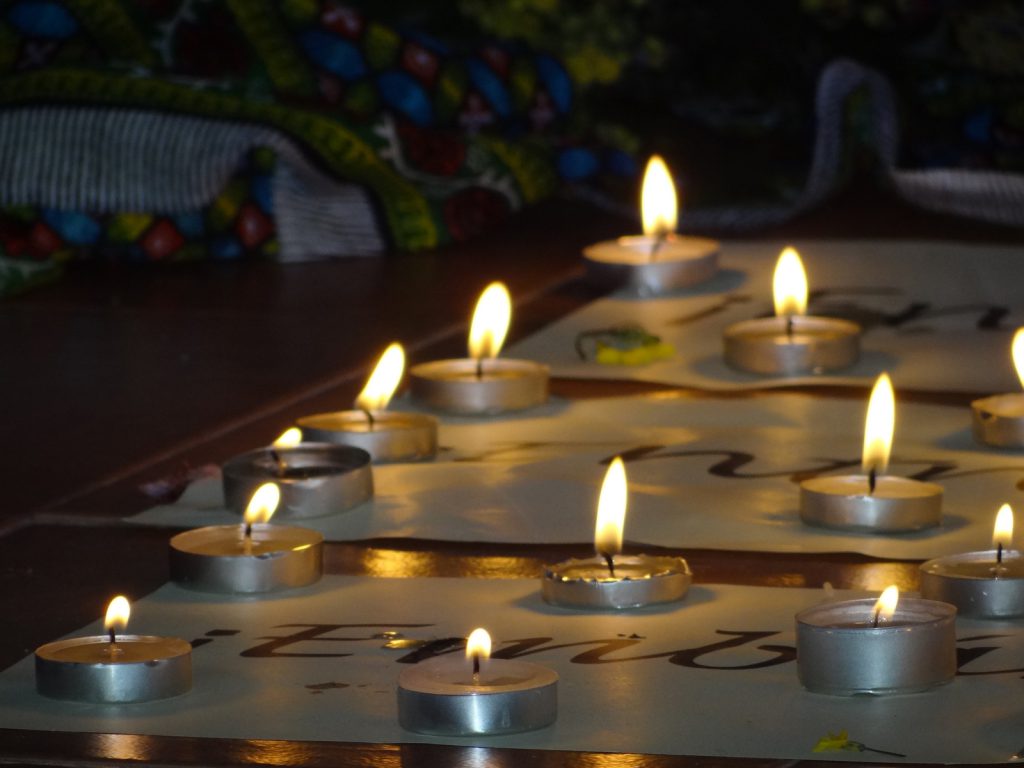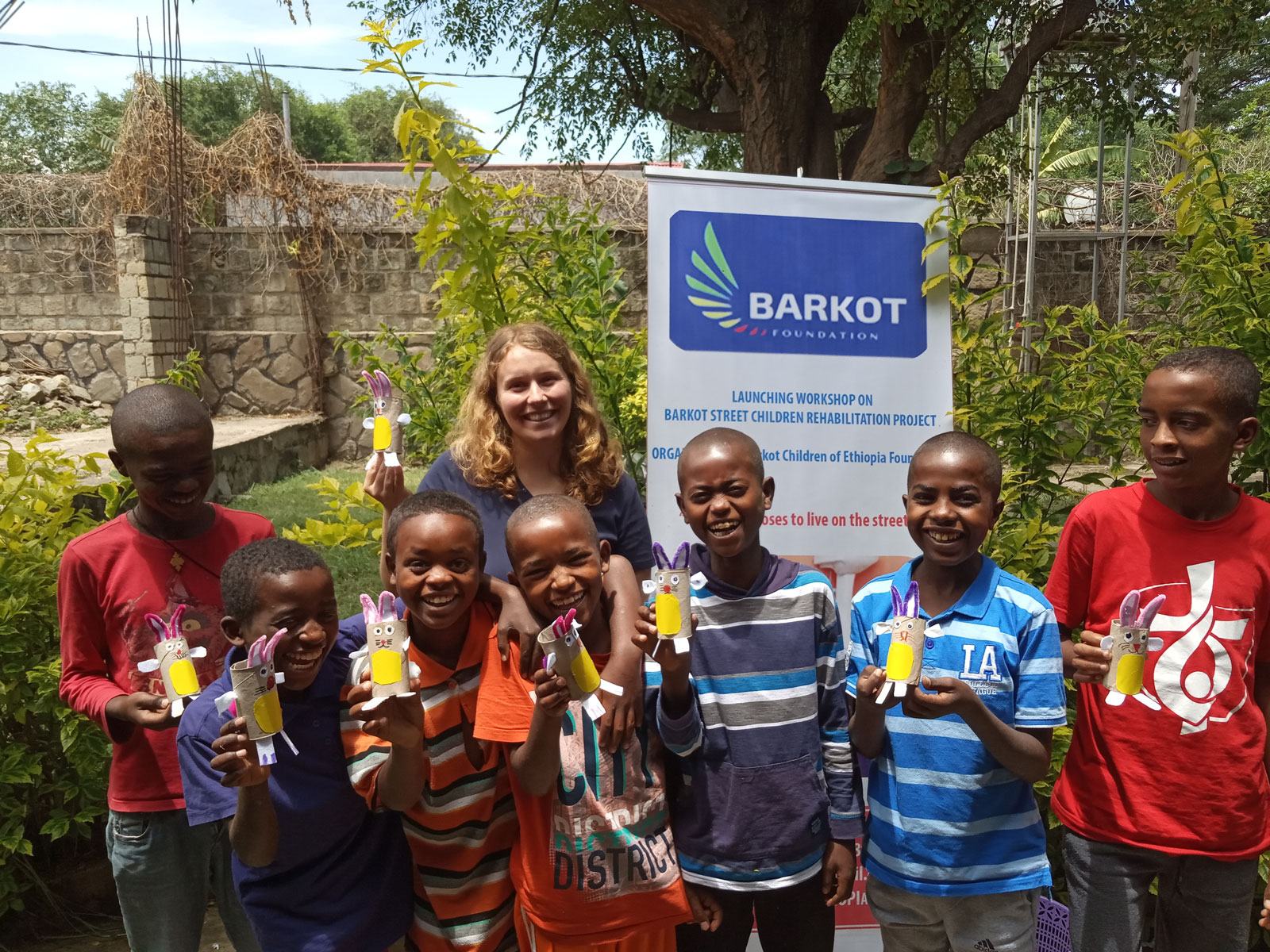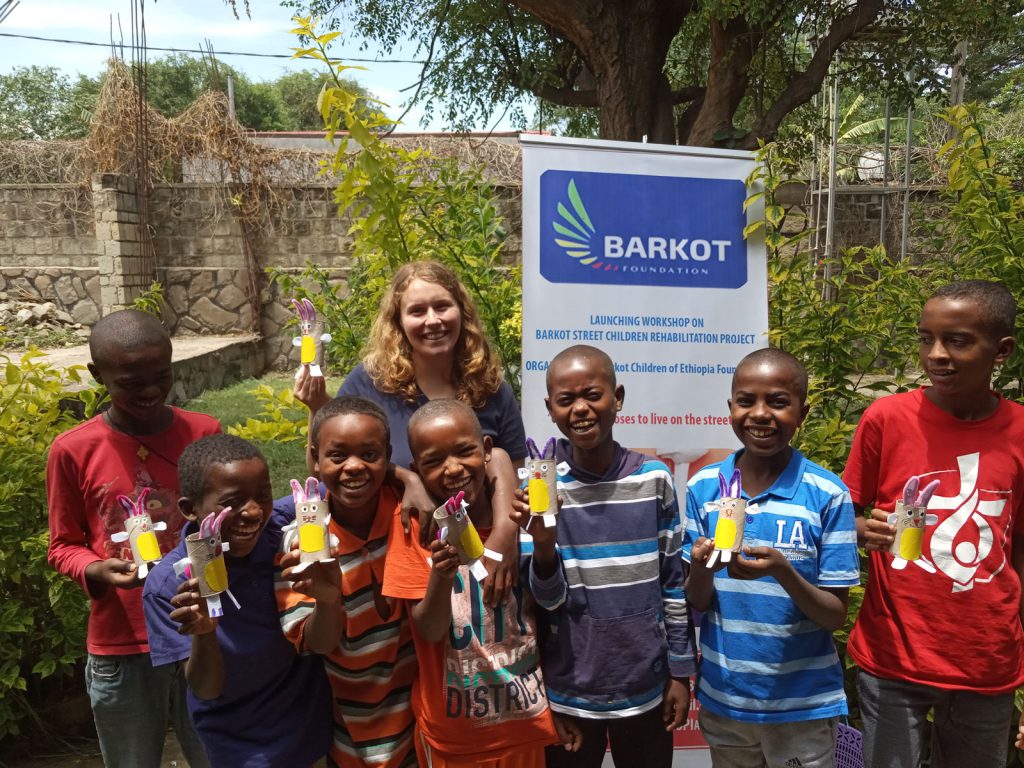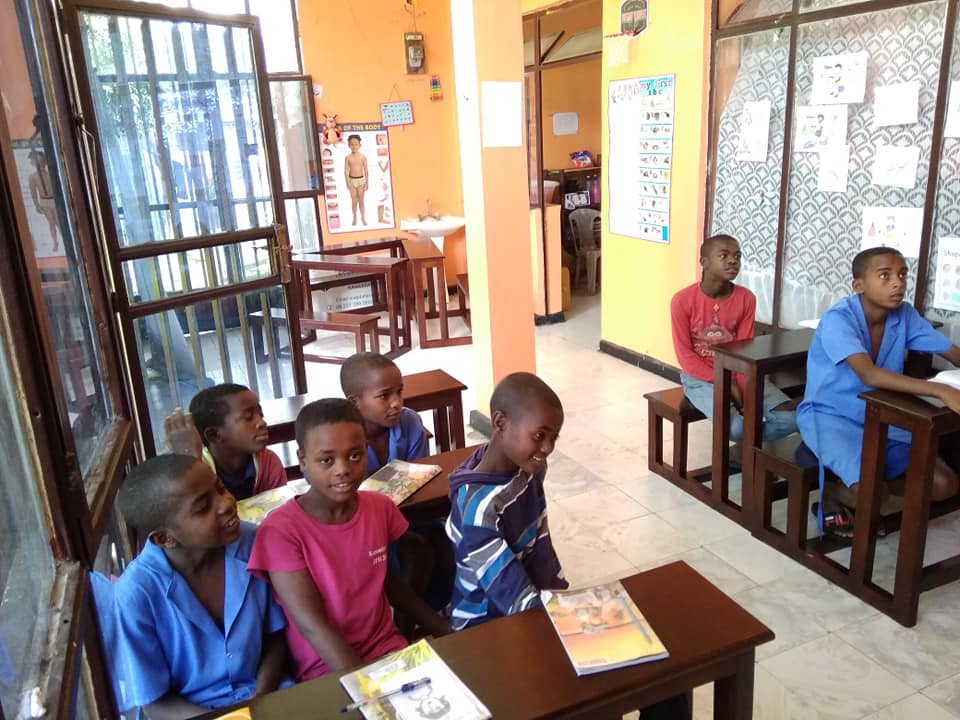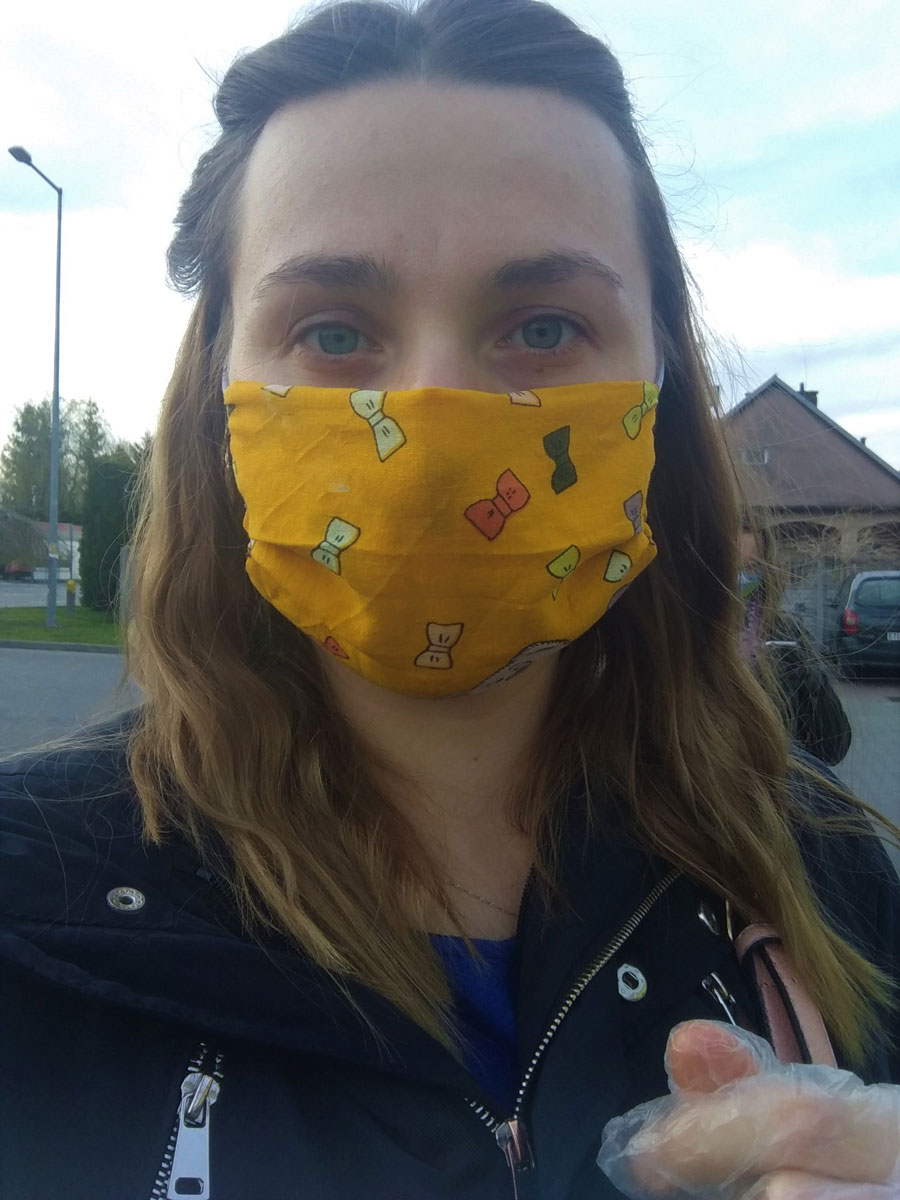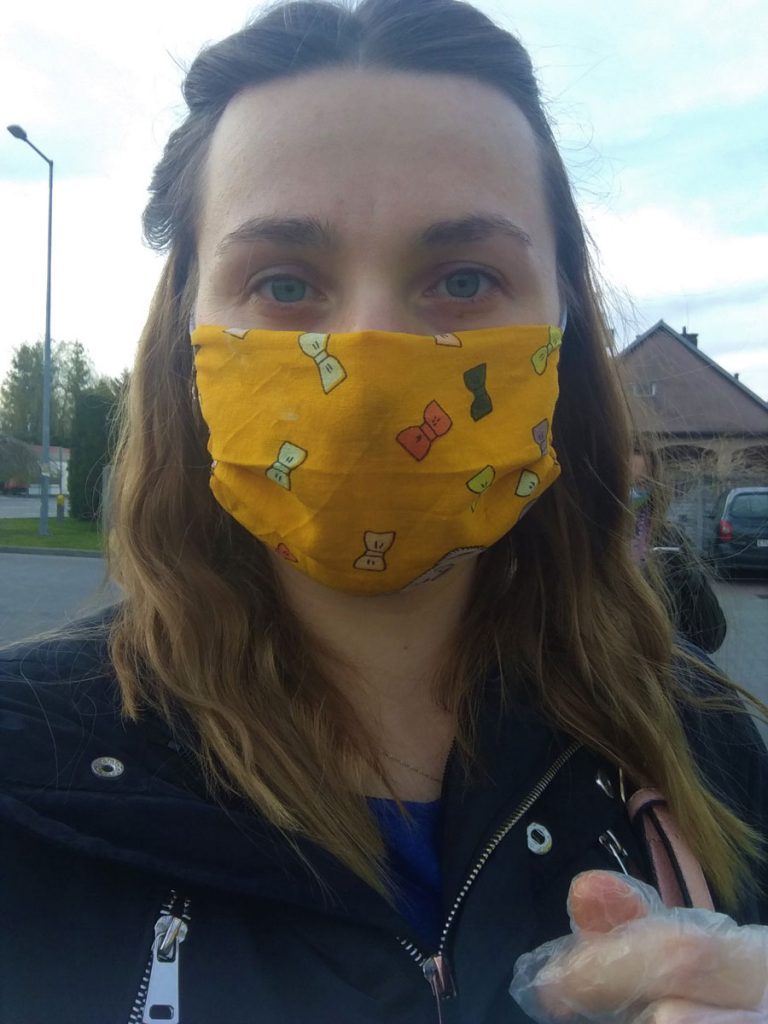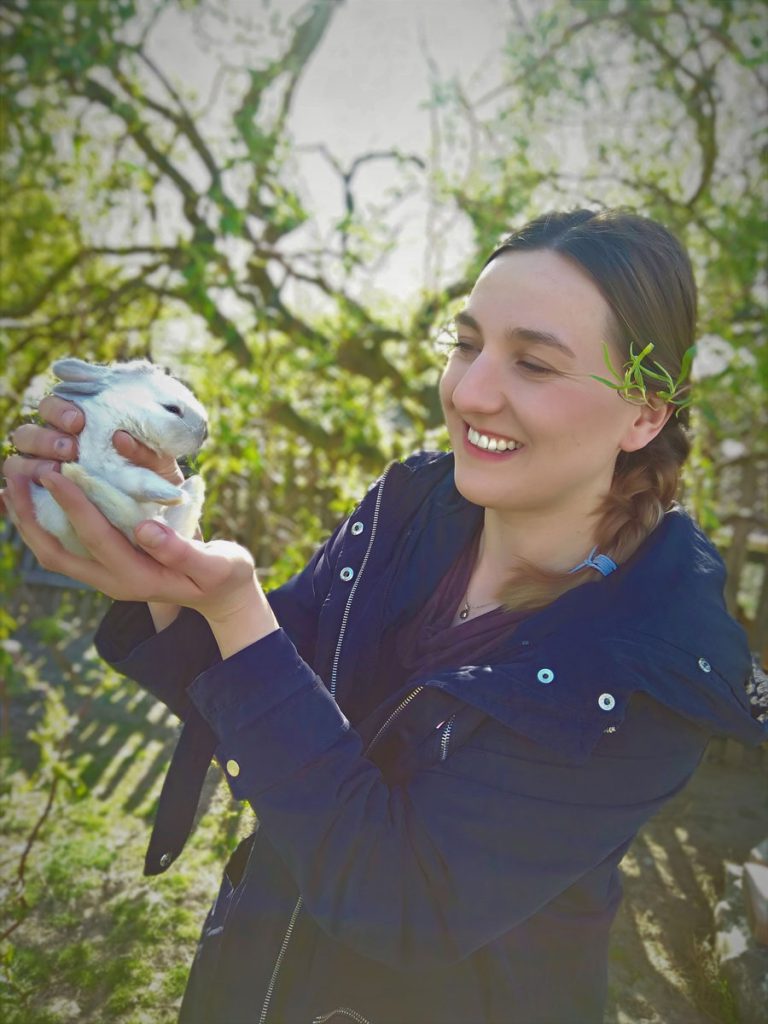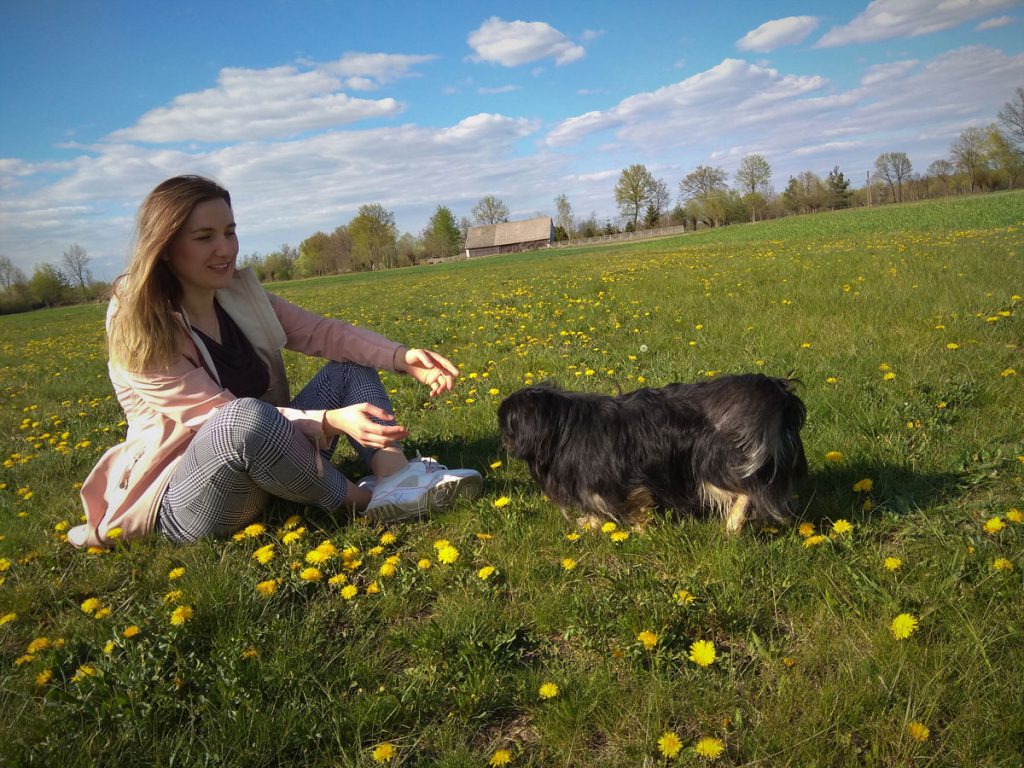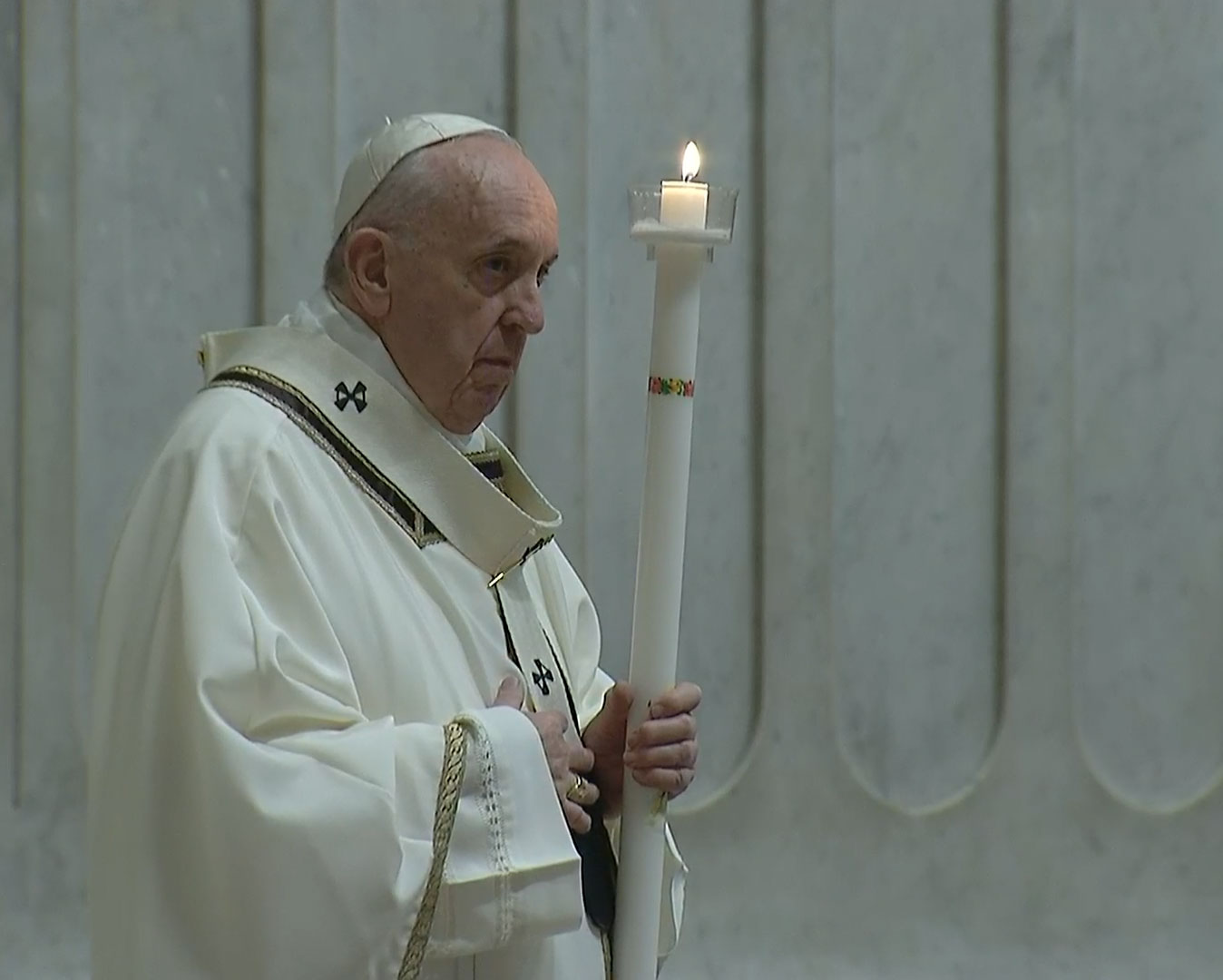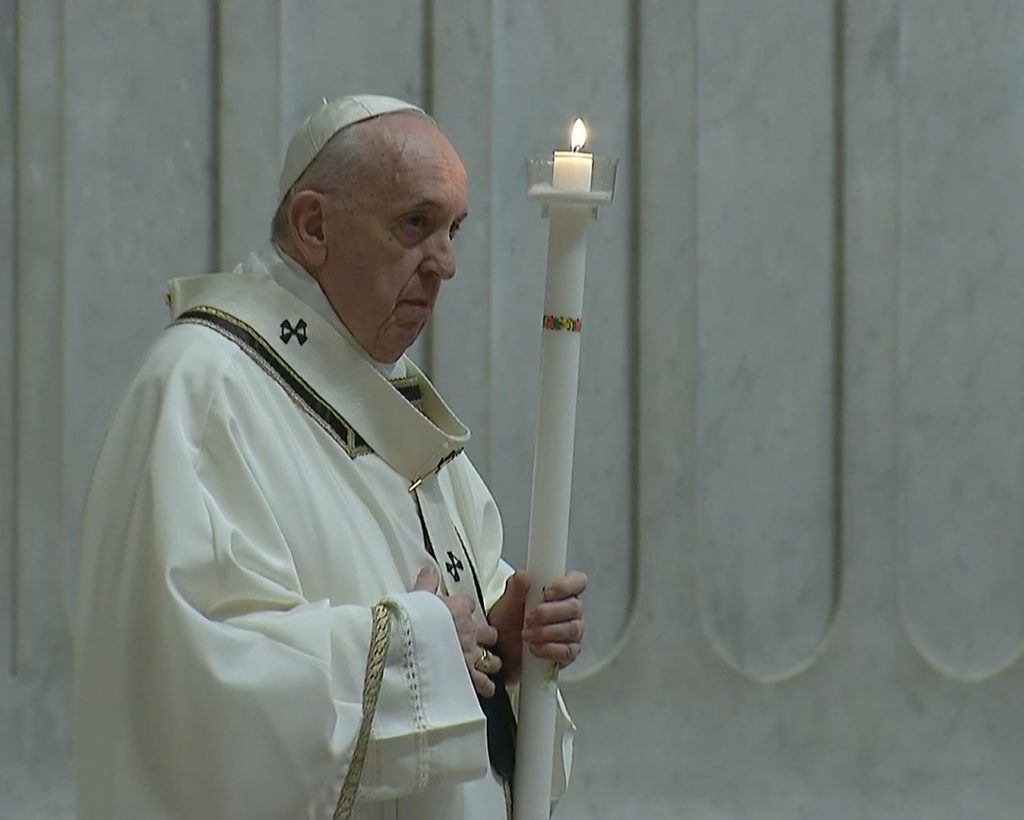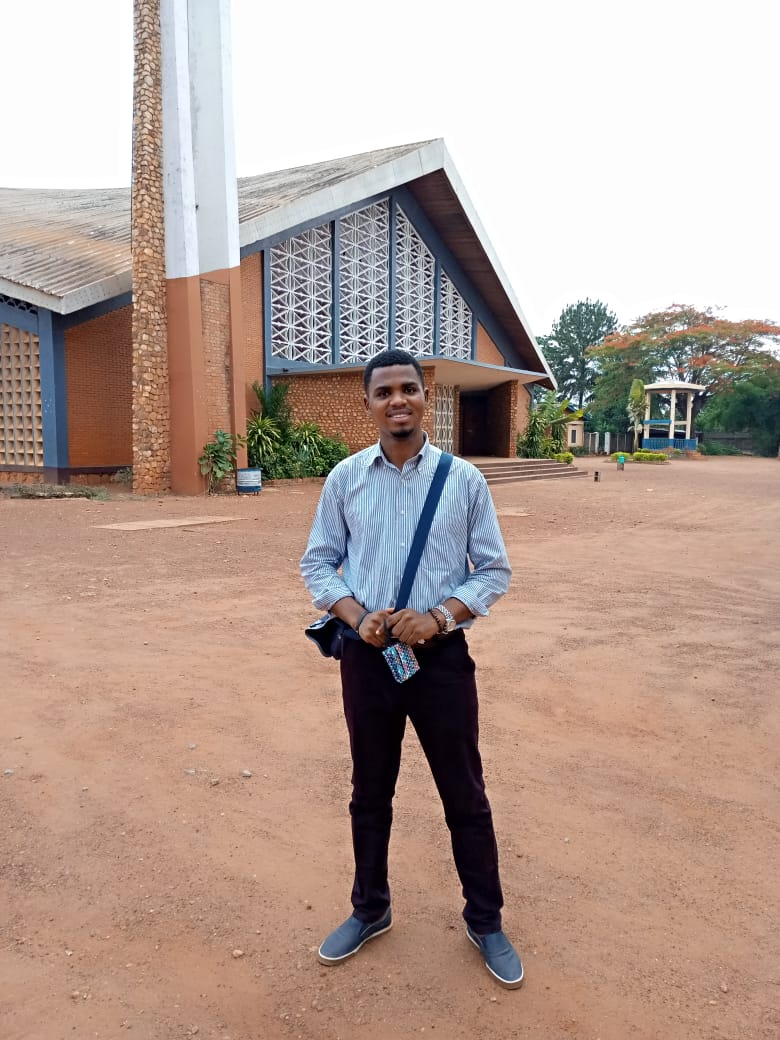
I feel like an heir of the prophetic vision of St. Daniel Comboni wanting to “Save Africa by means of Africa,” whose vision has now been expanded to Africa saving the world. The Lord tells us: “As the Father sent me, so I send you.” (John 20:21)
On the morning of Sunday, March 15, that promised to be a beautiful day I arrived in my mission land with my luggage, the Republic of Central Africa. I have no words to describe how I felt in the utmost depths of my being at that time. I landed in Bangui, after a long period of formation that included a community experience in Kinshasa. It was for me a moment of heartfelt emotions, on the one hand I felt the joy of being in mission, on the other hand I felt the pain of separation in leaving behind the country of my birth, the land of my ancestors, my family, my work, my community, my friends, etc… I still had in mind my last face to face meeting with my father the night of my departure and then this morning my mother who accompanied me to the airport together with the chaplain of the CLM of Congo, Fr. Celestine Ngore and our coordinator of the CLM in Kinshasa, Mr. Gerard Kambaji.
By then I knew that I belonged to a new family, I had been adopted by a new land and was happy to know that the Lord was waiting for me, here in the CAR, and that here I had new brothers and sisters.
The adventure begins
When I arrived in Bangui I was well received by Fr. Claude-Bernard, mccj who had come to pick me up and take me to the community where I was going to live. When we reached there, he showed me the place and told me that I needed to be quarantined there for 14 days to check on the coronavirus. That is when I realized that I had reached Bangui at a time marked by the pandemic of Covid-19. This was being a particular difficult time for the Comboni delegation in the CAR, because the first Covid 19 case in the country had been the one of a Comboni Missionary who had tested positive upon his return from Italy. Thus, his confreres who had been in contact with him when he returned to Bangui, were quarantined for 15 days to check on them. In this context, the government adopted preventive measured to limit the risk of contagion in a country where the health structures capable of fully facing this pandemic are few. So, every individual entering the CAR must be quarantined for 15 days.
At first it was difficult for me, and I had moments of loneliness in a house I hardly knew. But even though I was physically alone, I felt united to thousands of people who are isolated in this world, prisoners unjustly held in their cells, sick people without help, marginalized people living alone, plus I was receiving supporting and life-giving messages from all over through the social media. I felt strengthened by the words of our founder that “the works of God are born and grow at the foot of the Cross.” And since it was Lent, I took this opportunity to enter more deeply into this mystery and to offer my mission to the Lord and spend some time listening to him. And finally, like Comboni, I thanked Jesus for the crosses.
Discovering the CAR
At the end of my quarantine I did not show any sign of the virus, and could get out and meet the others, but always following the safe distance rules. So that, together with the fathers we started the legal steps for my papers. I could finally see Bangui, the monuments in the various squares of the city, like the Martyrs, the Peace monument and those of Bartolomé Boganda and Oumar Bongo Odima, just to name a few. It is a city with a rich culture. The trees were covered with dust because this is the dry season lasting six months. I could see and listen to the locals, and it was nice to listen to this new language, and speak gently and beautifully a language that uses also Lingala words we speak at home. Aside from these few words, it was also difficult for me, because I could not understand anything else in this language that we back home call Sango, where Sango means a minister of religion, while here it is the name of the language. So, I realized that I have to learn it all even though I thought we would have more similarities between the CAR and the DRC, because they border each other and we share several tribes. I concluded that I had to learn everything without exception, because Africa is one but varies according to the culture of each country.
At this time, while the entire world is affected by the coronavirus, the CAR authorities have declared a health emergency and have invited people to isolate themselves and strictly forbidden the gathering of more that 15 people. In view of this, they have closed the schools, the churches, the bars, and all sporting events or events of any type. But around here, people in general do not respect the order of the authorities to stay apart. I am realizing that it is difficult for the majority of the people who are poor and live on a day-to-day basis as we say around here. So they need to go out to sell or to look for food for the family. Here is where I realized the presence of the Lord’s grace and of divine protection.
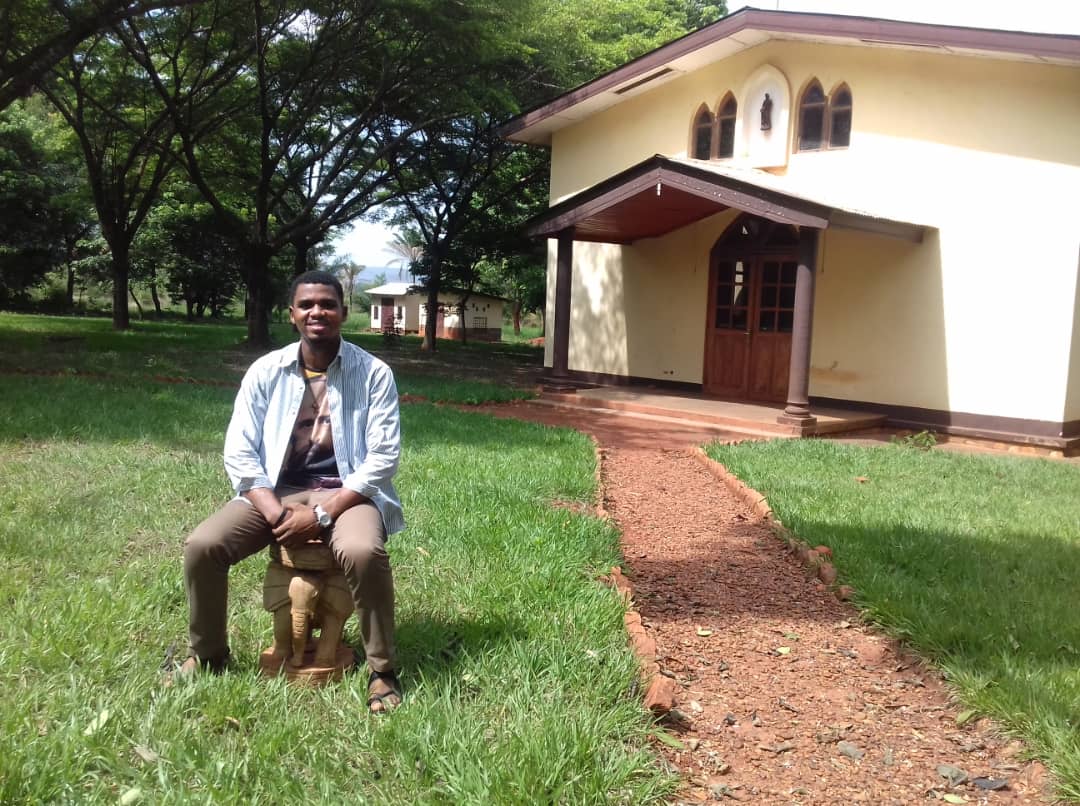
For the time being I am staying in Bangui to keep on learning the language and other things that will be useful in my mission of Mongoumba. Our founder, San Daniel Comboni, asks for the formation of persons who will be holy and capable. During this time of preparation, I keep on being patient, open and listening attentively with the attitude of a child. I as you to pray for me and I will not forget to do the same for you.
Enoch, CLM




